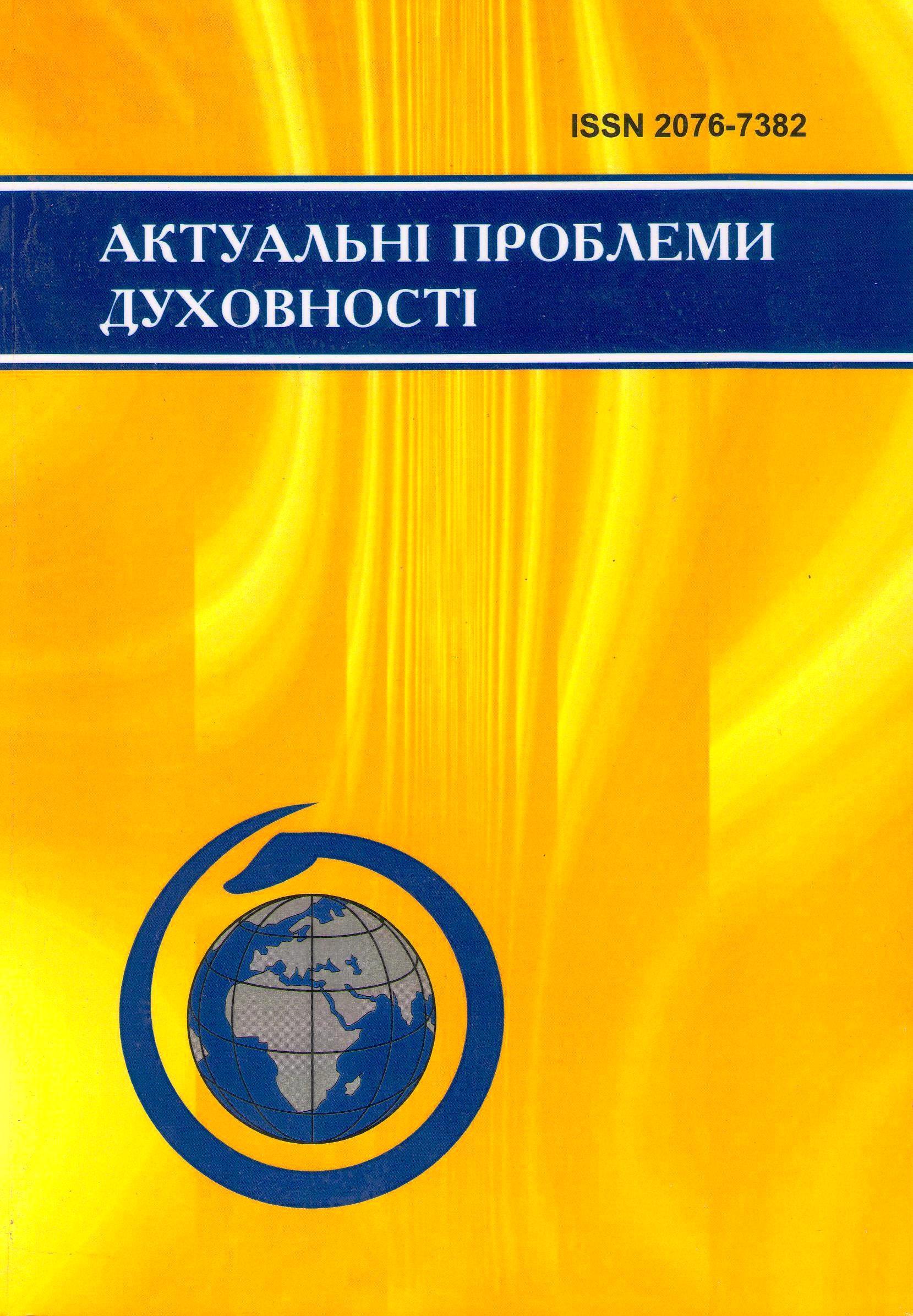The idea of mature mind in Kant’s philosophy
DOI:
https://doi.org/10.31812/apd.v0i22.4524Keywords:
Kant, mature mind, critical philosophy, Enlightenment, autonomy.Abstract
The article represented the reconstruction of the idea of mind, which formulated by Kant in his critical philosophy. The author rationalizes the position, that Kant as Enlightenment’s thinker reveals various aspects of his vision of the mature mind of the finite being – the mind of «adult» man. It is maintained that for Kant the concept of mind is the main concept of his critical philosophy at all and that in various works at different times he reveals certain philosophical aspects of the system phenomenon as a mature mind. Using political and legal metaphors, Kant, by analogy with legal systematicity, presents the mind as an ordered system, with a clear separation of the lawful and unlawful usage of the subject’s individual higher cognitive powers (such as understanding, judgment, reason) within their competence. The author demarcates three essential features of a mature mind in Kant’s explication: (1) free; (2) intersubjective; (3) autonomous. Each of these aspects has undergone a certain evolution, that represents the evolution of Kant’s philosophy in general: from a purely enlightening affirmation to the emancipation of reason (liberation from superstitions) to the idea of autonomous self-legitimate mind acting as a judge and arbiter within a holistic «critical enterprise». The author emphasizes that for Kant, the following maxim of free from superstitions mode of thought means that the mind is in an active state, without that state the mind cannot be a legislator either in the field of knowledge or practice. In this regard, a «revolutionary change in the way of thinking» (the Copernican revolution) in Kant’s theoretical and practical philosophy is considered as a consequence of his Enlightenment explication of mind. The article focuses also on Kant’s explication of the public use of mind and the idea of a broadened way of thinking, his critique of the position of logical selfishness and his conceptualization of logical pluralism based on the idea of the universal mind.
Downloads
References
Habermas Yu. Strukturni peretvorennia u sferi vidkrytosty: Doslidzhennia katehorii hromadianske suspilstvo / per. z nim. A. Onyshko. Lviv : Litopys, 2000.
Maksimov S. I. Filosofiya prava I. Kanta kak proekt pravovogo obshchestva. Immanuil Kant: nasledie i proekt / pod red. V. S. Stepina, N. V. Motroshilovoj. Moskva : «Kanon» ROOI «Reabilitaciya», 2007. S. 351-358.
Onnash E.-O. Vid Kanta do Hehelia abo Shcho take klasychna nimetska filosofiia? / per. z nim. O. Olifer. Aktualni problemy dukhovnosti. Vyp. 17. Kryvyi Rih. 2016. S. 3-15.
Popper K. R. Evolyucionnaya epistemologiya. Evolyucionnaya epistemologiya i logika social’nyh nauk: Karl Popper i ego kritiki. Moskva : Editorial URSS, 2000. S. 57-74.
Reale Dzh., Antiseri D. Zapadnaya filosofiya ot istokov do nashih dnej. Ot Vozrozhdeniya do Kanta / per. s ital. S. A. Malcevoj. SanktPeterburg : Pnevma, 2002.
Solovev E. Y. «Ne daj mne Bog sojti s uma. . . » (maksima samosohraneniya razuma v antropologii Kanta). Istoriko-filosofskij ezhegodnik’ 2011. Moskva : Kanon, 2012. S. 205-232.
Fuko M. Shcho take Prosvitnytstvo? / per. z fr. I. Karivtsia. Humanitarni vizii. 2015. Vyp. 1, No 2. S. 109-116.
Hinske N. Mezhdu Prosveshcheniem i kritikoj razuma: etyudy o korpuse logicheskih rabot Kanta; Bez primechanij: aforizmy / per. s nem. pod red. N. V. Motroshilovoj. Moskva : Kulturnaya revolyuciya, 2007.
Brown J. Fallibilism: Evidence and Knowledge. Oxford : Oxford University Press, 2018.
Cassirer E. Die Philosophie der Aufklärung. Tübingen : Verlag von J.C.B. Mohr, 1932.
Dworkin G. The Theory and Practice of Autonomy. Cambridge : UK Cambridge University Press, 1988.
Kant I. Anthropologie in pragmatischer Hinsicht. Immanuel Kant, Gesammelte Schriften. Hrsg.: Bd. 1–22 Preussische Akademie der Wissenschaften, Bd. 23 Deutsche Akademie der Wissenschaften zu Berlin, ab Bd. 24 Akademie der Wissenschaften zu Göttingen, Berlin 1900ff. (Die Akademie-Ausgabe der Schriften Immanuel Kants = АА). Band VII. 117-333.
Kant I. Beantwortung der Frage: Was ist Aufklärung? Kant: AA VIII. 33-42.
Kant I. Bemerkungen zu den Beobachtungen über das Gefühl des Schönen und Erhabenen. Kant: AA XX. 1-192.
Kant I. Der Streit der Facultäten. Kant: AA VII. 1-115.
Kant I. Grundlegung zur Metaphysik der Sitten. Kant: AA IV. 465-565.
Kant I. Kritik der praktischen Vernunft. Kant: AA V. 1-163.
Kant I. Kritik der reinen Vernunft (2. Aufl. 1787). Kant: АА, III.
Kant I. Kritik der Urteilskraft. Kant: AA V. 165-485.
Kant I. Logik. Kant: AA IX, 1-150.
Kant I. Von einem neuerdings erhobenen vornehmen Ton in der Philosophie. Kant: AA VIII. 387-406.
Kant I. Was heißt: Sich im Denken orientiren? Kant: AA VIII. 131-147.
Møller S. Ch. Kant’s tribunal of reason: legal metaphor and normativity in the Critique of pure reason. Cambridge, New York : Cambridge University Press, 2020.
O’Neill O. Constructions of reason Explorations of Kant’s practical philosophy. Cambridge : Cambridge University Press, 1989.
Popper K. R. Conjectures and refutations: the growth of scientific knowledge. London : Routledge, 2010.
Popper K. R. Immanuel Kant: Der Philosoph der Aufklärung in Popper K. R. Die offene Gesellschaft und ihre Feinde. Bd. 1: Der Zauber Platons. Verlag : UTB, Stuttgart, 1992. S. 11-27.
Willingham D. T. Why don’t students like school? : A cognitive scientist answers questions about how the mind works and what it means for your classroom. San Francisco : John Wiley & Sons, 2009.
Downloads
Published
Issue
Section
License
Copyright (c) 2021 Oksana Panafidina

This work is licensed under a Creative Commons Attribution 4.0 International License.





